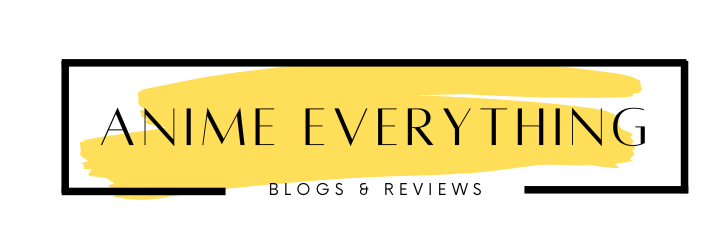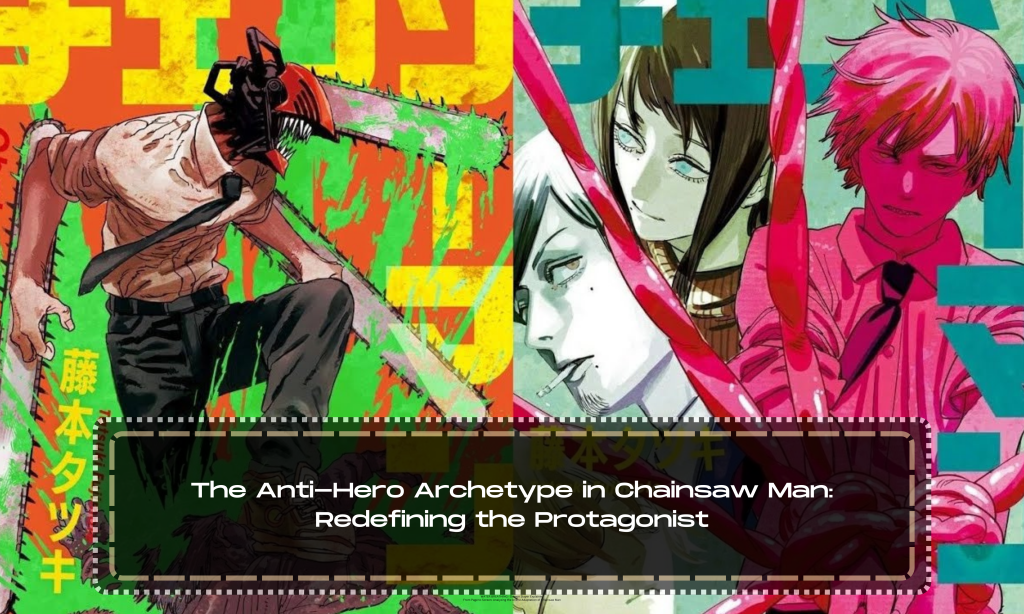The Anti-Hero Archetype in Chainsaw Man: Redefining the Protagonist
In the realm of anime and manga, there’s a character archetype that often defies the conventions of traditional heroes—the anti-hero. These protagonists blur the lines between right and wrong, challenging our perceptions of heroism and morality. Enter “Chainsaw Man,” a series that not only embraces the anti-hero archetype but pushes it to the extreme. Join me as we dissect the complexities of this unconventional protagonist and how he redefines the very notion of what it means to be a hero.
Introduction: The Anti-Hero’s Ascendance
Before we dive headfirst into the chaotic world of “Chainsaw Man,” let’s establish the significance of the anti-hero archetype in storytelling. Anti-heroes are characters who lack the typical heroic qualities like unwavering morality and selflessness. Instead, they possess a mix of virtues and vices that make them more relatable and, at times, even morally ambiguous.
Chainsaw Man: A Hero Like No Other
Our anti-hero, Denji, the titular Chainsaw Man, is a far cry from the squeaky-clean image of traditional shonen protagonists. He’s a devil hunter who transforms into a chainsaw-wielding demon to battle other devils. Denji’s motivations are far from noble; he’s driven by the simple desire to eat good food and have a roof over his head. This raw and primal urge is a stark departure from the grand ideals that typically fuel heroes.
The Bleak World of “Chainsaw Man”
One cannot discuss Denji’s anti-heroic nature without delving into the bleak and unforgiving world he inhabits. “Chainsaw Man” presents a dystopian setting where devils lurk in the shadows, and humanity is constantly on the brink of annihilation. In such a world, traditional heroism often takes a backseat to survival and self-preservation.
Complex Relationships and Moral Ambiguity
Denji’s interactions with other characters further emphasize his anti-heroic qualities. His relationships are marked by pragmatism rather than idealism. Characters like Power, a devil-human hybrid, and Aki, a fellow devil hunter, have their own moral complexities that mirror Denji’s. This moral ambiguity permeates the series and challenges the traditional hero-villain dichotomy.
The Pursuit of Simple Pleasures

One of Denji’s defining characteristics is his pursuit of life’s simple pleasures—food, shelter, and companionship. In a world where grandiose goals and noble causes often drive protagonists, Denji’s down-to-earth desires resonate with a different aspect of the human experience. His relatability lies in his pursuit of comfort and connection rather than lofty ideals.
The Tragic Side of Anti-Heroes
While anti-heroes can be charismatic and relatable, they often carry a heavy burden of tragedy. Denji’s past is riddled with hardship and loss, adding depth to his character. This tragic element is a common thread among anti-heroes, highlighting the complexity of their personalities and the demons they wrestle with, both figuratively and literally.
The Duality of Heroism and Monstrosity
“Chainsaw Man” constantly blurs the lines between heroism and monstrosity. Denji’s transformations into the Chainsaw Man are a testament to this duality. While he battles devils to protect humanity, the very nature of his power is demonic. This dichotomy challenges our preconceived notions of what it means to be a hero.
Conclusion: Denji’s Chaotic Journey
As we conclude our exploration of Denji’s anti-heroic journey in “Chainsaw Man,” we find ourselves in a world that defies traditional hero narratives. Denji’s primal desires, complex relationships, and moral ambiguity redefine the protagonist archetype. He is not a hero in the conventional sense, but he is undeniably compelling and relatable.
“Chainsaw Man” demonstrates that heroism is not confined to lofty ideals and unwavering morality. Sometimes, heroism can emerge from the darkest corners of our existence, fueled by the simplest of desires. Denji’s chainsaw roars through the boundaries of traditional heroism, leaving behind a trail of chaos and redefining our understanding of what it means to be a hero in the world of anime and manga.
That’s me, Andreea Blaga, author of the blog anime-everything.com. I work as a content creator in the US. I am also passionate about Japanese Anime.


Related post
Character Study: Korra and Aang’s Legacy
In the richly woven tapestry of the “Avatar” universe, the characters of Korra and Aang...
Jul
Islands of Wonder: Exploring the Unique Geography of One Piece
Enter the vibrant world of One Piece, a beloved manga and anime series created by...
Jul
Unveiling ‘The Eminence in Shadow’: A Dive into its Intriguing Premise
“The Eminence in Shadow” is a light novel series written by Daisuke Aizawa and illustrated...
Jul
Dragon Ball Z: A Cultural Phenomenon Through the Ages
Since its debut in 1989, “Dragon Ball Z” has become a cultural phenomenon that transcends...
Jul
Unleashing the Chainsaw: A Deep Dive into Chainsaw Man’s Gripping Plot
In the realm of dark fantasy manga, few series have captivated readers quite like Tatsuki...
Jul
Aang’s Journey: From Reluctant Hero to Avatar of Peace
In the world of animated series, few have captured the hearts and minds of viewers...
Jul